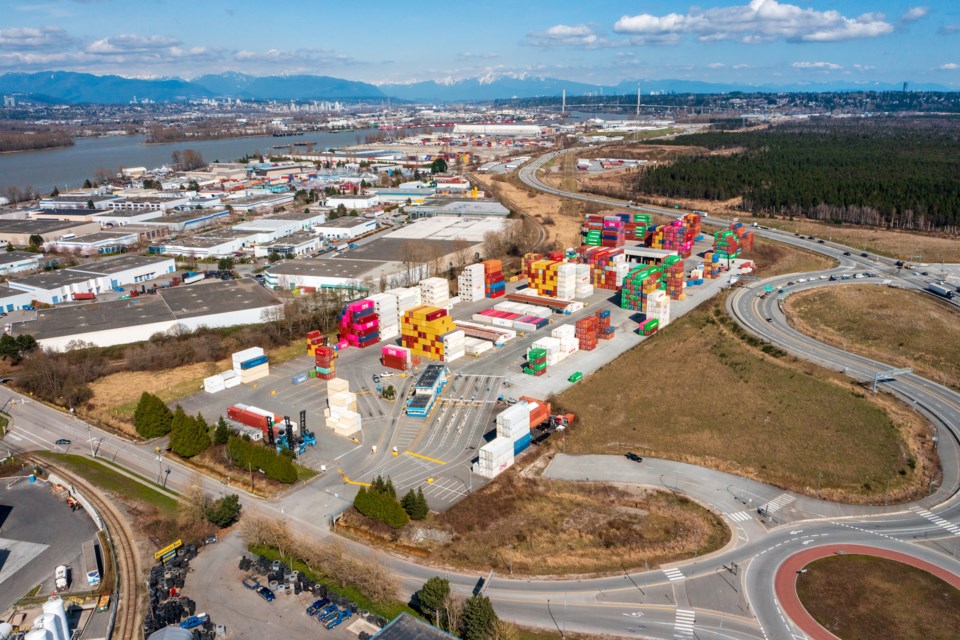Metro Vancouver’s industrial market is entering a period of equilibrium, as the frenzy that once defined the market dies down.
This is according to a Vancouver Real Estate Forum expert panel, which last week described as “more normalized.”
“There’s not this frothy demand where you’ve got … eight people fighting each other for space. Now you’re getting one or two offers. That’s more of a normal market,” said Tim Evans, senior director of leasing with real estate investment firm BentallGreenOak.
Industrial vacancy for the Metro Vancouver region increased to 2.1 per cent in the first quarter of 2024. This is the first time that vacancy rate has broken through the two-per-cent level in the past seven years, according to an April 4 report from Colliers.
This is a sign that the region’s industrial market is starting to enter balanced conditions—a market with a vacancy rate of two to three per cent, according to Stuart Morrison, executive vice-president of industrial with Colliers.
“What we’re observing is the next five years is going to look very different from what happened five years ago. On our projects we’re seeing that end-users have been taking a step back and really evaluating what certainty looks like for them,” said Alicia Chung, senior director of sales and marketing with developer Conwest.
“In the next 12 to 24 months, we’ll be really painting the story of what new balanced vacancy will look like.”
There were 6.2 million square feet of notable distribution centre developments in the pipeline in Metro Vancouver at the start of 2022, and they were 65 per cent pre-leased, according to Susan Thompson, associate director of research with Colliers.
The new development pipeline for this type of product has decreased by 47 per cent since, down to 3.3 million square feet with only 12 per cent pre-leasing in place.
Across all types of industrial buildings, the construction pipeline shrank by 27 per cent from a peak of 10.3 million square feet under construction in the second quarter of 2023 to 7.5 million square feet at the end of Q1 2024.
When it comes to the industrial strata market, Vancouver is “unique” when compared to other North American markets, according to Morrison.
“Generally, at least 20 per cent of all new industrial projects in the pipeline are strata titled and currently 22 per cent of our new development pipeline consists of strata projects,” he said, adding that Toronto is at seven per cent for strata projects in the pipeline, and Calgary is at less than five per cent.
“This figure is zero per cent for Montreal, which is a very nice place to live and there’s quite a robust economy, so it’s surprising,” Morrison said.
The average asking rate for industrial strata space in Metro Vancouver was $611 per square foot in Q1 2024, nearly unchanged from $612 per square foot in Q4 2023, according to Colliers.
“Fundamentally, there is a desire for people to own in this region, which translates to a more robust, stronger market alongside how the residential market works as well,” said Chung.
“It’s very obvious at this point, the biggest hurdle right now is the cost of ownership given the rapid rise in interest rates.”
Paul Morassutti, chair of commercial real estate firm CBRE, who spoke at the beginning of the forum, said that “we don’t know how much or when interest rates will fall in 2024 but it certainly does look like they are headed low.”
Speculation that rates will fall later this year has rekindled interest in the industrial strata market, according to Colliers.
“The strata market is gathering speed after a challenging year in 2023,” said the report.
“The expanding selection of well-located, high-quality strata properties has also encouraged some occupiers to consider owning instead of leasing.”





